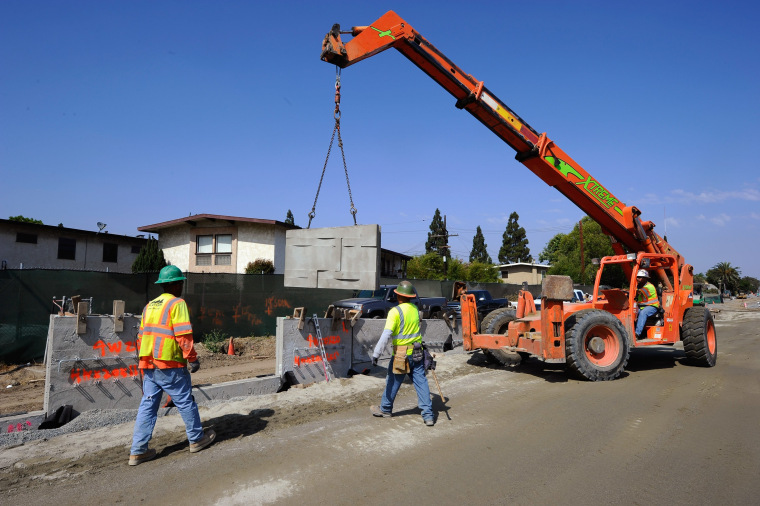As the nation celebrates Labor Day, Latino officials and labor leaders state Hispanics increasingly represent the workforce of the future – as well as the future of the labor movement.
U.S. Secretary of Labor Thomas E. Perez believes that the best way to honor workers on Labor Day is to give them a raise. “President Obama’s opportunity agenda is about rewarding hard work with a fair wage,” he said. “That’s why we’ve fought so hard for an increase in the national minimum wage to $10.10 an hour. It’s based on a very basic value proposition: no one who works full-time in America should have to raise their families in poverty. The president’s proposal would benefit 28 million workers nationwide, one quarter of whom are Latino.”
Perez said that too many low-wage Latino workers face difficult choices every day. “Do we buy a gallon of milk or a gallon of gas? Do we pay the utility bill this month or buy school supplies? Raising the minimum wage would put more money in their pockets, giving them a little more breathing room and peace of mind.”
Meanwhile, many union leaders say it is important to understand the significance of Hispanics as a vital force in the labor movement.
“Everyone has read the demographic statistics on what is going on,” said Yvette Herrera, Senior Director, Politics, Communication, and Education of the Communications Workers of America (CWA). She acknowledged that, in years past, unions did not do enough to reach out to Latino workers. “But I see things changing. I see more Latino leaders in the labor movement, and they are really coming up in terms of leadership.”
Herrera noted that unions are making a greater push in Southern states, where the Latino population is booming. “There was a time when we stayed away from those states,” she said. “But those days are over.”
According to the Bureau of Labor Statistics, Hispanic union membership is lower than other demographic groups. In 2013, only 9.4 percent of Latinos were in a union, which is lower than the national average for union membership of 11.3 percent.
Union membership among Hispanics is also disproportionately low considering that Latinos comprise 15.6 percent of the workforce, and 17 percent of the population.
Chuck Rocha, president of the consulting firm Solidarity Strategies, said that unions have “absolutely” become more inclusive of Hispanic workers. “I see more effort being taken today by the labor movement than ever before to organize Latinos,” he said. “Almost every union in the country has Latino outreach going on.”
A 2010 report by the National Council of La Raza found that Latinos made greater financial gains from union membership compared to other workers, and that both Hispanic men and women in unions earned more than their non-union counterparts. Yet the median Hispanic income still lags behind other Americans, and there is growing income inequality among Latinos. The question is whether unions can play a significant role in remedying this situation.
Hector E. Sanchez, Executive Director of the Labor Council for Latin American Advancement, states that that unionization is critical to improving the economic well-being of Hispanics. “Latinos are the most likely of any group to suffer wage violations and wage theft, they are among the highest for workplace injuries, and… Latinas, on average, only make 60 cents on the dollar compared to other workers – the largest wage gap among working women. So Latinos, more than other groups, need union protections.”
Sanchez stressed the fact that organized labor is strongly supportive of immigration reform. “Our undocumented people are the most vulnerable group in the workforce, and we cannot ignore them. I am optimistic that we can change things, by continuing to put pressure on the president for executive action, and on Congress to act.”
“Latinos deserve their basic labor rights, civil rights, and human rights,” Sanchez said. “I hope that on Labor Day, people will reflect on how many of our everyday benefits, from social security to paid vacation to sick leave to an 8-hour workday … were brought about because of the contributions of union movement.”
